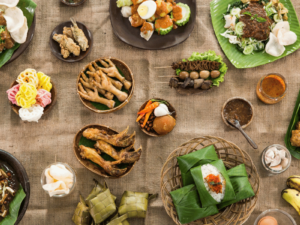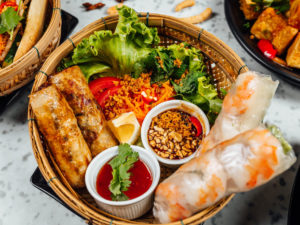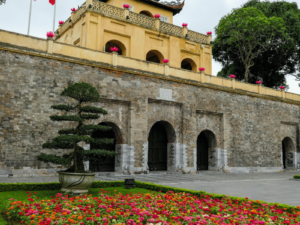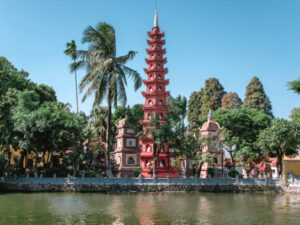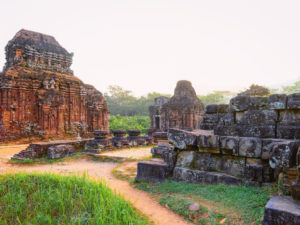Necessary information
Heritage Tours:
Heritage tours offer travellers the opportunity to visit historical sites, ancient architecture, museums, and traditional craft villages. These tours are designed to provide an in-depth understanding of a region's history, architectural styles, artistic expressions, and local customs. By exploring these culturally significant locations, tourists can gain a deeper appreciation for the historical and artistic achievements of different societies. Whether it’s wandering through centuries-old ruins, admiring the intricate designs of ancient temples, or observing skilled artisans at work, heritage tours allow participants to connect with the past in a meaningful way.
Festival Tours:
Festival tours immerse tourists in the vibrant atmosphere of traditional, religious, and artistic festivals. These tours are particularly appealing for those who wish to experience the local culture in its most lively and expressive forms. Participants can join in the celebrations, observe rituals, and engage with the community, all while gaining a deeper understanding of the festival’s significance and the cultural practices that surround it. Whether it’s the colourful parades, traditional music and dance performances, or the communal spirit of the event, festival tours offer a unique glimpse into the cultural heart of a destination.
Culinary Tours:
Culinary tours focus on the exploration of local cuisine, offering travellers a taste of regional specialities and an insight into the culinary traditions of different areas. These tours often include visits to local markets, food tastings, and even cooking classes where participants can learn how to prepare traditional dishes. By engaging in these gastronomic experiences, tourists not only satisfy their taste buds but also learn about the cultural significance of food in the region, from traditional cooking methods to the social customs surrounding meals.
Cultural Experience Tours:
Cultural experience tours provide an immersive experience where tourists live with local communities and engage in their daily activities. These tours offer a unique opportunity to learn about the local way of life, including their customs, traditions, and social practices. Participants might take part in traditional cultural activities such as singing, dancing, or crafting, giving them a hands-on understanding of the local culture. By sharing in these everyday experiences, travellers can develop a genuine connection with the people and culture of the area, making their visit both memorable and educational.
For Tourists:
Cultural tourism offers travellers a wealth of benefits, starting with the expansion of their knowledge and understanding of diverse cultures. By engaging with the cultural practices, traditions, and histories of different regions, tourists gain a deeper appreciation for the world’s variety and richness. These experiences often leave lasting impressions, as visitors are able to partake in unique cultural activities that create unforgettable memories. Additionally, by participating in cultural tours, tourists contribute to the preservation and promotion of traditional values and practices. This involvement helps ensure that these cultural heritages are safeguarded for future generations to appreciate and learn from.
For Local Communities:
Cultural tourism also brings significant advantages to local communities. One of the primary benefits is the economic boost it provides. As tourists visit historical sites, attend festivals, and participate in local activities, they contribute to the local economy, helping to create jobs and support small businesses. This influx of tourism revenue can be crucial for the development of the area, improving living standards and fostering economic growth. Furthermore, cultural tourism serves as a powerful tool for promoting the local culture and identity to both domestic and international visitors. It helps to showcase the unique traditions, arts, and lifestyles of the community, attracting more visitors and fostering a greater appreciation of their cultural heritage. Additionally, the interaction between tourists and locals enhances cultural exchange, fostering mutual understanding and respect between different ethnic groups, and contributing to a more harmonious and interconnected global society.
When engaging in cultural tourism, it is essential for travellers to be mindful of several important considerations to ensure a respectful and enriching experience. First and foremost, respecting the local culture and customs is paramount. Each community has its own set of traditions and social norms, and tourists should make a conscious effort to understand and adhere to these practices. This includes showing reverence for religious sites, observing local etiquette, and being sensitive to cultural differences.
Appropriate attire is another crucial aspect to consider. Visitors should dress modestly and in a manner that aligns with the cultural expectations of the places they visit. This not only shows respect for the local community but also helps travellers to blend in more harmoniously with their surroundings.
Environmental protection is also a significant responsibility for cultural tourists. Preserving the natural beauty and cleanliness of the areas visited is essential. Tourists should avoid littering and make use of designated waste disposal facilities to minimise their environmental impact.
Lastly, when it comes to photography or filming, it is important to seek permission from guides or local authorities before capturing images or videos. In some cultures, taking photos may be considered intrusive or disrespectful, especially in sacred or private settings. By asking for consent, tourists show respect for the privacy and cultural sensitivities of the local people, thereby ensuring a more positive interaction and experience for both parties.
Preparing for a cultural tourism tour requires careful consideration to ensure a smooth, respectful, and enriching experience. First and foremost, it is important to research the cultural norms and customs of the destination. Understanding the local traditions, languages, and social etiquette in advance helps travellers avoid unintentional disrespect and allows them to engage more meaningfully with the community.
Packing appropriately is another key aspect of preparation. Tourists should bring clothing that is not only suitable for the climate but also respectful of the cultural expectations. For example, in many places, modest attire is required, especially when visiting religious sites or traditional communities. Comfortable shoes are also essential, as cultural tours often involve walking through historical sites or villages.
In addition to clothing, travellers should prepare any necessary documentation, such as visas, permits, or tickets required for access to certain cultural sites. It is also wise to carry a small amount of local currency for purchases in markets or small shops that may not accept credit cards.
Cultural tourists should also pack items that contribute to a positive environmental impact, such as reusable water bottles, eco-friendly toiletries, and biodegradable waste bags. This helps to minimize their environmental footprint and support the preservation of the destinations they visit.
Finally, it is beneficial to bring along a notebook or a digital device to record observations, insights, and reflections throughout the tour. This not only enriches the experience but also serves as a valuable record of the cultural discoveries made during the trip. By preparing thoughtfully, tourists can fully immerse themselves in the cultural experience, making the most of their journey while showing respect for the places they visit.







